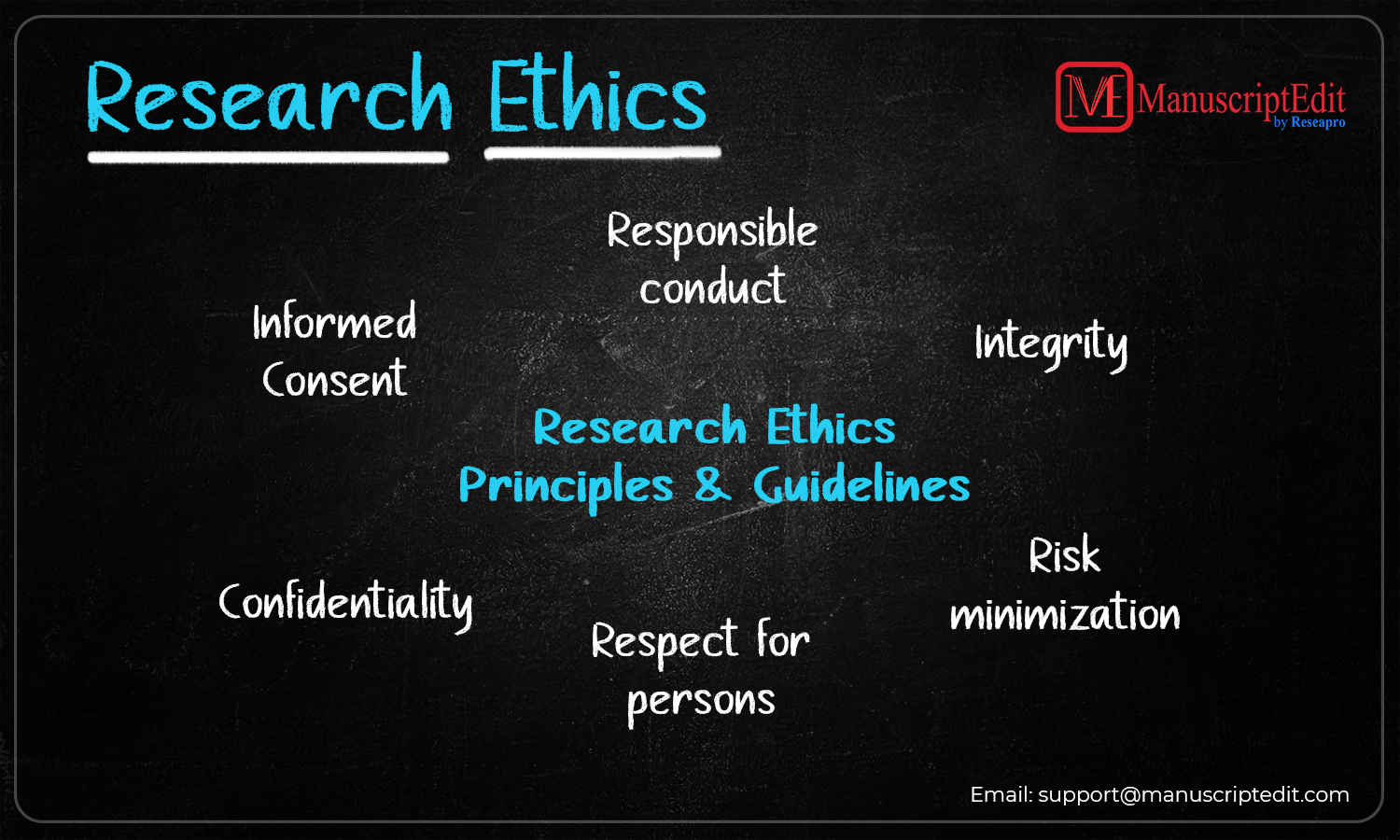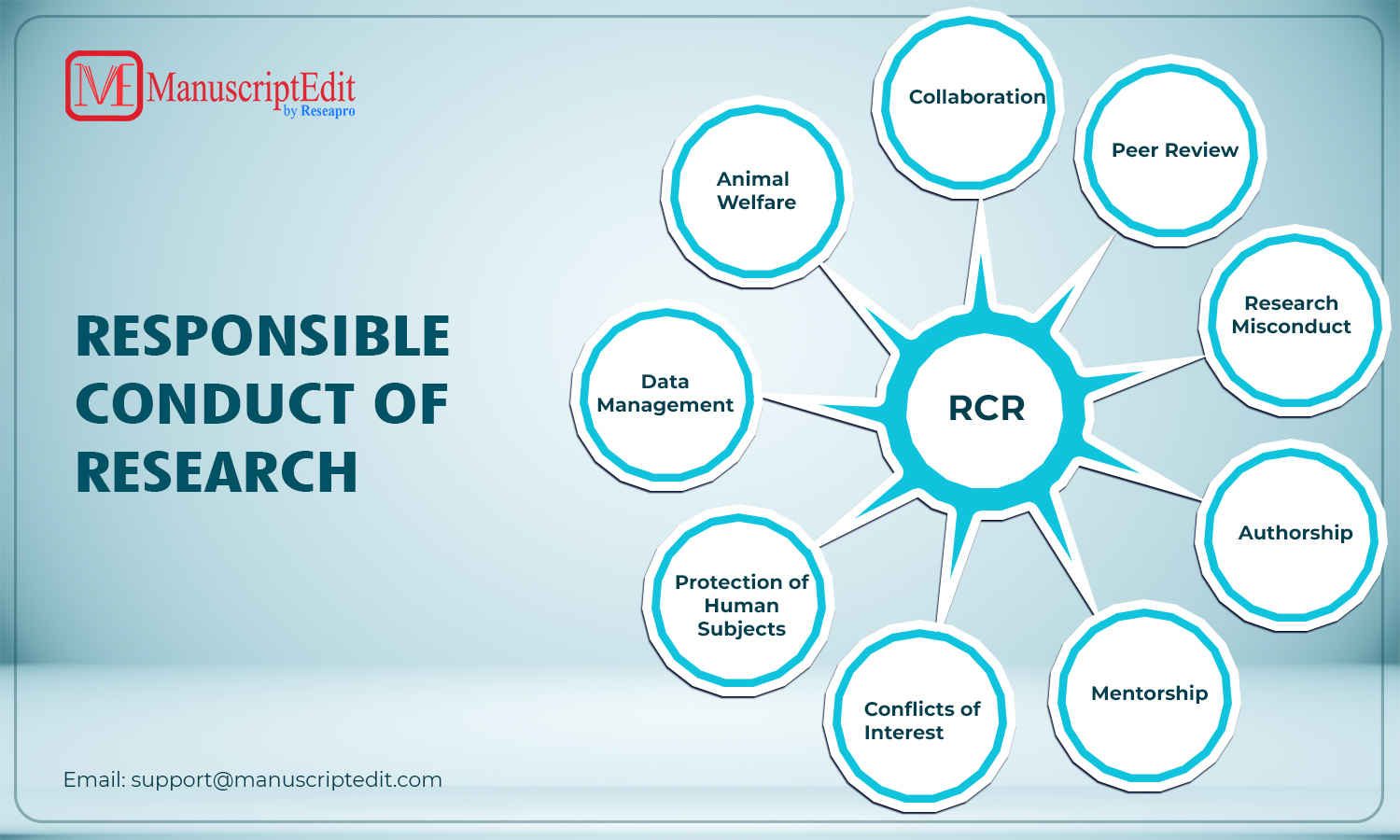
Research ethics are essential because they guarantee that scientific studies are carried out with accountability, integrity, and respect. Unethical research techniques can have serious repercussions, including injury to participants, a decline in public confidence, and harm to the image of the research community.

Furthermore, unethical research might waste resources and negatively impact society by producing inaccurate or misleading results. Guidelines for the responsible conduct of research can encourage ethical and significant scientific research.
Guidelines for Responsible Conduct of Research
Institutional Review Boards (IRBs) and study Ethics Committees (RECs), which examine and approve study proposals, offer guidelines for the ethical conduct of research. Professional societies and organizations like the National Academy of Sciences and the American Psychological Association also set moral standards.
Government laws and regulations, such as the Common Rule and the Belmont Report, also provide a framework for ethical research practices, guaranteeing that research is carried out with accountability, honesty, and respect.
What Are the Principles of Responsible Research Conduct?
The 9 areas of responsible conduct of research provide a comprehensive framework for ethical research practices. These areas include:
- Research misconduct (fabrication, falsification, plagiarism).
- Research ethics and integrity.
- Conflict of interest.
- Collaborative research and authorship.
- Peer review and editorial practices.
- Data management and sharing.
- Research involving human participants.
- Research involving animals.
- Environmental and social responsibility. When diligently followed, these areas address honesty, objectivity, respect for participants, and accountability, ensuring that research is conducted with integrity, respect, and responsibility. Adhering to these areas promotes trust, credibility, and excellence in research and inspires a sense of purpose and motivation in the research community.
What Are the Guidelines of Conducting Research?
It is crucial to adhere to regulations that give ethical procedures top priority when doing research. These guidelines cover things like getting participants’ informed consent and making sure they understand the purpose of the study and any potential risks; protecting participants’ privacy and confidentiality; preventing harm and minimising risk by foreseeing and averting potential adverse outcomes; and guaranteeing accountability and transparency through transparent documentation and open communication.Respecting these rules helps to create an ethical and positive research environment by encouraging integrity, trust, and respect in research. Researchers can guarantee ethical and significant research by prioritising participants’ rights and well-being.
 Conclusion
ConclusionResearch ethics are critical to ensuring that scientific studies are carried out with accountability, honesty, and respect. Prioritising ethical issues allows researchers to advance research excellence, credibility, and trust.
Researchers must accept accountability for their moral behaviour, respect moral standards, and pursue moral greatness. By doing this, we can uphold the most significant ethical standards and promote innovation and knowledge, which will eventually benefit society as a whole.
References
https://www.niehs.nih.gov/research/resources/bioethics/whatis